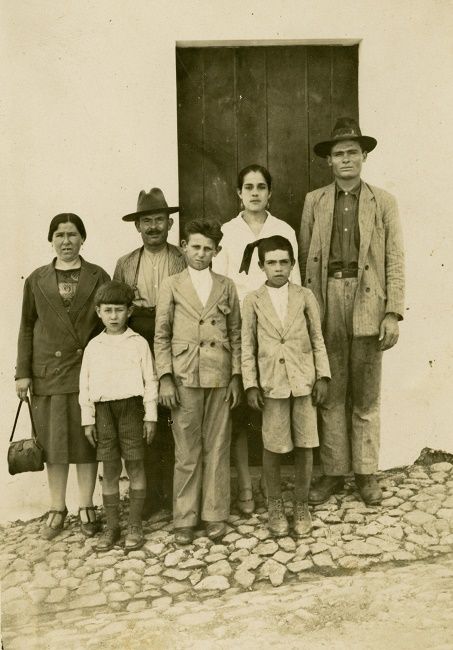Obras de referência da cultura portuguesa
"A CORTE NA ALDEIA"
PORTUGAL COM SAUDADES DE SI
de RODRIGUES LOBO
Análise de Miguel Real
Tradução de Alexandra Leitão

Culturalmente, a obra A Corte na Aldeia e Noites de Inverno (1619), dezasseis diálogos sobre os preceitos de vida na corte, dedicada a D. Duarte, irmão do Duque de Bragança, e a D. Teodósio, pai de D. João IV, escrita por Rodrigues Lobo, intenta relembrar ficcionalmente, entre a pequena nobreza de província, o antigo fausto da corte portuguesa, inserindo-se, assim, na literatura autonomista. Escreve Rodrigues Lobo, na introdução, que “depois que faltou a Portugal a corte dos Sereníssimos Reis, ascendentes de V. Excelência [o irmão do Duque de Bragança] (da qual as nações estrangeiras tinham tão grande satisfação e os vizinhos tão igual inveja), retirados os títulos [de nobreza] pelas vilas e lugares do reino, e os fidalgos e cortesãos por suas quintãs e casais, vieram a fazer cortes nas aldeias, renovando as saudades do passado, como lembranças devidas àquela dourada idade dos Portugueses”.
De ambiente bucólico e atmosfera triste, os diálogos, não tematizando nem a política nem a religião, distribuem-se pelo preceituário de maneiras estabelecido na corte, defendendo uma ética de cariz nobre e uma moral cavalheiresca de honra no trato entre iguais, desprezando o arrivismo de fortuna e o oportunismo de situação, subentendendo-se igual desprezo pelos modos cortesãos chegados de Madrid. Neste sentido, Rodrigues Lobo defende uma ética aristocrata e fidalga, ao modo de Sá de Miranda, e perpétua, acentuando-a, a melancolia nacional já presente nos versos deste; porém, se, neste, os versos possuem uma contenção formal e racional, uma como que simplicidade bela, o trabalho sobre a língua de Rodrigues Lobo, seja nas éclogas, seja na sua prosa, é já animado de adornos maneiristas que, mais do que simplificar a expressão, tornando-a transparente ao entendimento, a complexificam em jogos sintáticos e semânticos. Vernacular, sem dúvida, a prosa de Rodrigues Lobo é por vezes tão requintadamente trabalhada que se aproxima já do barroquismo.
A Corte na Aldeia, reavivando o código português de cortesia, objetiviza literariamente um sentimento nacionalista, que pulsa culturalmente sob a aparente neutralidade dos temas abordados e das personagens dos diálogos. Do mesmo modo, o forte elogio ao uso da Língua Portuguesa (“branda para deleitar, grave para engrandecer, eficaz para mover, doce para pronunciar, breve para resolver e acomodada às matérias mais importantes da prática e escritura…”) e a admoestação a quem a troca pela língua castelhana não deixam dúvidas do intento nacionalista presente em Rodrigues Lobo.
"A CORTE NA ALDEIA" by RODRIGUES LOBO
PORTUGAL YEARNING FOR ITSELF
Culturally speaking, A Corte na Aldeia e Noites de Inverno (1619), written by Rodrigues Lobo (ca. 1579 – 1621), sixteen dialogues about the rules of life at court, which is dedicated to D. Duarte, the brother of D. Teodósio, Duke of Braganza and father of King D. João IV, is intended as a fictional memory among the minor provincial nobility of the former grandeur at the Portuguese Court, and can be included in the genre of autonomist literature. In the introduction, Rodrigues Lobo writes that “after Portugal was bereft of the court of its Most Serene Kings, forebears of Your Excellency [the brother of the Duke of Braganza] (in which foreign nations were so pleased and neighbours equally envious), the [noble] titles having retired to the towns and villages of the kingdom and the peers and courtiers having removed to their estates and houses, they set up courts in the villages, renewing their yearning (saudade) for the past, as memories owed to that golden age of the Portuguese”.
The dialogues, bucolic and gloomy, touching neither on politics nor on religion, are divided between the rules and etiquette established at court, defending noble ethics and a knightly code of honour in relations between equals, despising the new rich and opportunism, with implied contempt for the courtly manners imported from Madrid. In this regard, Rodrigues Lobo defends an aristocratic and lordly ethic, in the mode of Sá de Miranda, and by accentuating it perpetuates the national melancholy already present in the latter’s verses. However, whilst these verses are formally and rationally restrained, beautifully simple, in fact, Rodrigues Lobo’s language, both in the eclogues and in his prose, is already animated by mannerist frills which rather than simplifying expressions and making them easier to understand, complicates them by syntactic and semantic games. Although definitely vernacular, Rodrigues Lobo’s prose is sometimes so laboriously rendered that it is almost Baroque.
A Corte na Aldeia, recalling the Portuguese courtly code, literarily objectifies a naturalist sentiment that pulses culturally under the apparent neutrality of the themes discussed and the characters of the dialogues. Similarly, the high praise for the use of the Portuguese language (“soft to delight, serious to aggrandise, efficient to move, sweet to pronounce, short to resolve and suited to the most important materials of speaking and writing…”) and the rebuke to those who exchange it for Spanish, leave no doubts as to the nationalist intention present in Rodrigues Lobo.
projeto desenvolvido pelo Centro Nacional de Cultura
com o apoio do Ministério da Cultura

 Divulgue aqui os seus eventos
Divulgue aqui os seus eventos













